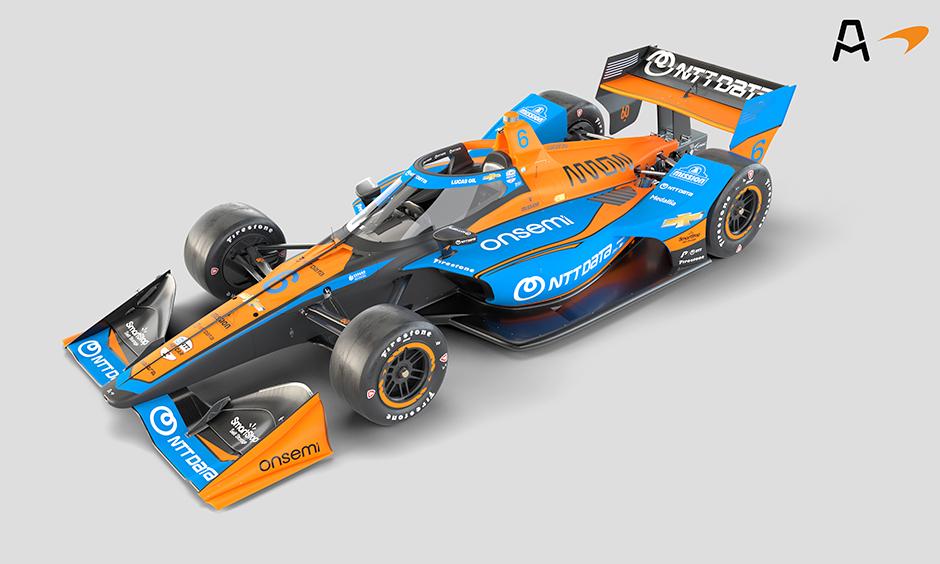In a significant turn of events for motorsports enthusiasts and racing aficionados, IndyCar has officially withdrawn its proposal to host a race in Mexico City in 2026. The decision comes in light of the upcoming FIFA World Cup, which is set to take place in the same year and in a similar timeframe. Organizers cited logistical challenges and potential scheduling conflicts tied to the prestigious global football tournament as primary factors in their decision. The declaration has sparked discussions about the implications for both IndyCar’s expansion plans and the sporting landscape in Mexico, a country with a rich racing heritage. As the world prepares for an exciting summer of soccer,the motorsports calendar will undergo notable changes that leave racing fans eagerly awaiting further developments.
IndyCar’s Decision to Withdraw from 2026 Mexico Race: Analyzing the World Cup’s Scheduling Clash
In a significant turn of events, IndyCar has officially announced its decision to withdraw from the highly anticipated 2026 race in Mexico, primarily due to scheduling conflicts with the FIFA World Cup. The potential overlap between one of the most watched sporting events globally and the racing championship has raised concerns regarding logistics, fan engagement, and overall visibility for the IndyCar series. Stakeholders have expressed that the excitement generated by the World Cup would overshadow the IndyCar event,which would likely lead to a diluted racing experience for fans and sponsors alike.
This decision has sparked discussions within the motorsport community about the broader implications of sporting events scheduling and its impact on attendance. Key factors influencing this outcome include:
- venue Availability: The race track facilities in Mexico will be primarily geared towards managing World Cup activities.
- Travel Logistics: Increased congestion and logistical challenges during the World Cup period make hosting another large event impractical.
- Fan Prioritization: With the global attention focused on football, attracting an audience to the IndyCar race during this time would be substantially challenging.
Economic Implications for Mexican Motorsport: Understanding the broader Impact of the World Cup on IndyCar’s Plans
The recent announcement that IndyCar has opted out of pursuing a race in Mexico City for 2026 has significant ramifications for the local motorsport industry and the broader economic landscape. With the FIFA World Cup set to take place in the same year, resources and attention will be heavily diverted toward the massive influx of visitors and the extensive infrastructure required for the event. This shift raises critical questions about the viability of hosting additional large-scale sporting events concurrently. The focus on the World Cup is likely to affect not only the budget allocations for motorsport but also the logistical capabilities of venues and cities involved, possibly leaving IndyCar’s aspirations sidelined.
The economic implications extend beyond just the racing series. The convergence of these major sporting events could lead to a surge in tourism and local business for Mexico City, yet it may simultaneously strain city resources. A few key points highlight how this situation could play out:
- Increased Tourism: The World Cup is expected to bring thousands of international visitors, boosting local hotels and restaurants.
- Infrastructure Strain: Transportation and accommodations may face challenges due to overlapping schedules.
- Investment Shift: Sponsors and investors may prioritize funding for the World Cup over motorsport endeavors.
As discussions around the World Cup continue, IndyCar teams and officials will need to reassess their strategies and explore alternative venues in Latin America that could fill the void.The economic landscape for motorsports in Mexico will need to evolve to accommodate these changes, presenting both challenges and opportunities for local stakeholders aiming to keep the spirit of motorsport alive in the country.
Looking Ahead: Strategies for IndyCar to Revisit Mexican Markets Post-World Cup
As IndyCar re-evaluates its strategy for entering the Mexican market post-World Cup, it’s crucial to leverage the heightened interest in motorsports that the global event has generated. With Mexico City’s rich racing heritage and a passionate fanbase, indycar can regain momentum by implementing targeted approaches. Key strategies might include:
- Partnering with Local Sponsors: Collaborating with influential Mexican brands can enhance visibility and establish mutual benefits.
- Community Engagement and Grassroots Programs: Developing programs focused on youth engagement can cultivate a new generation of fans.
- Hybrid Events: Hosting joint events with local racing series to highlight IndyCar’s presence and attract diverse audiences.
Furthermore, IndyCar should consider utilizing data analytics to understand fan behavior and preferences better. This insight may guide effective marketing strategies and give rise to unique fan experiences. A potential approach could involve:
| Strategy | Goal |
|---|---|
| Data-Driven Marketing | Enhance target audience reach |
| Collaborative Promotions | Increase event attendance |
| Content Localization | Resonate with regional cultures |
By embracing these innovative strategies, IndyCar can not only overcome the challenges posed by the recent postponement but also foster a lasting and impactful presence within the Mexican motorsports landscape.
Wrapping up
the decision by IndyCar to withdraw its bid for a 2026 race in Mexico highlights the complexities of scheduling events in a year marked by the global spotlight of the World Cup. As the motorsport series reassesses its priorities and logistical challenges, the focus now shifts to future opportunities and venues that may align more seamlessly with their calendar. Stakeholders will undoubtedly continue to explore options that can host the thrilling competition indycar is known for, even as the world’s attention converges on the sporting extravaganza of the World Cup.the landscape of motorsport is ever-evolving, and while this particular bid has been set aside, the potential for growth and new partnerships remains on the horizon.









